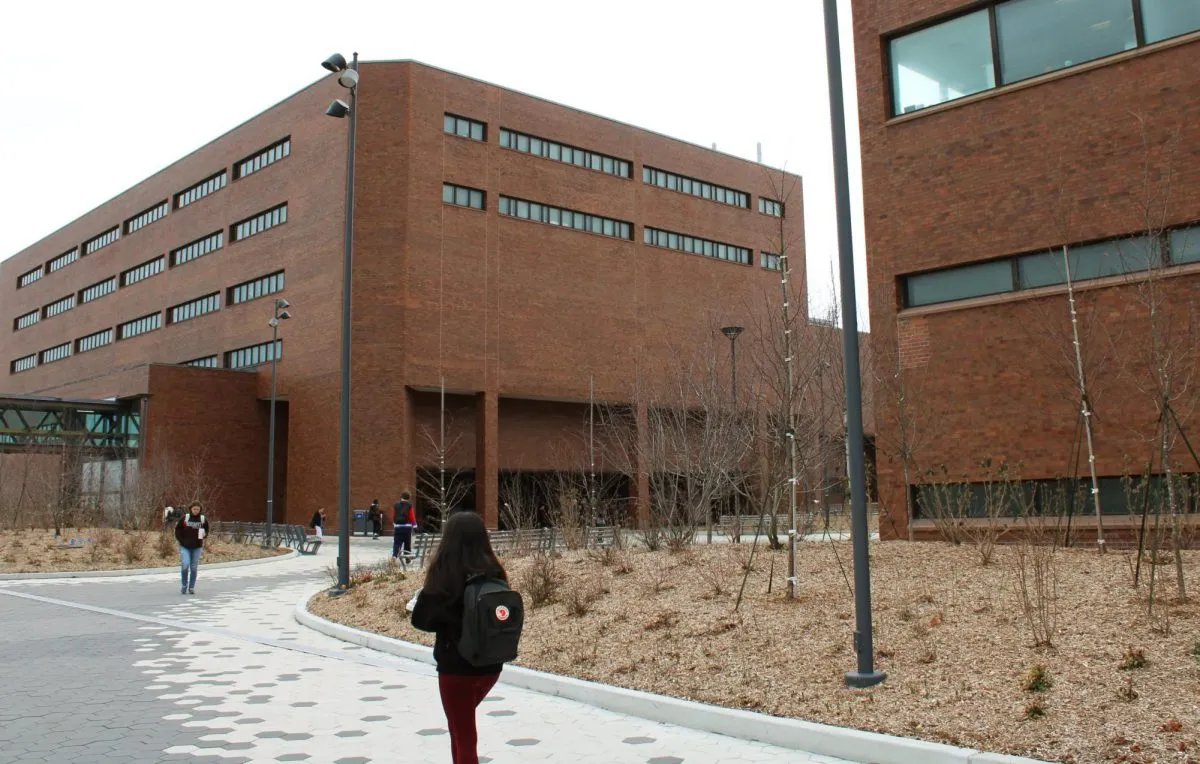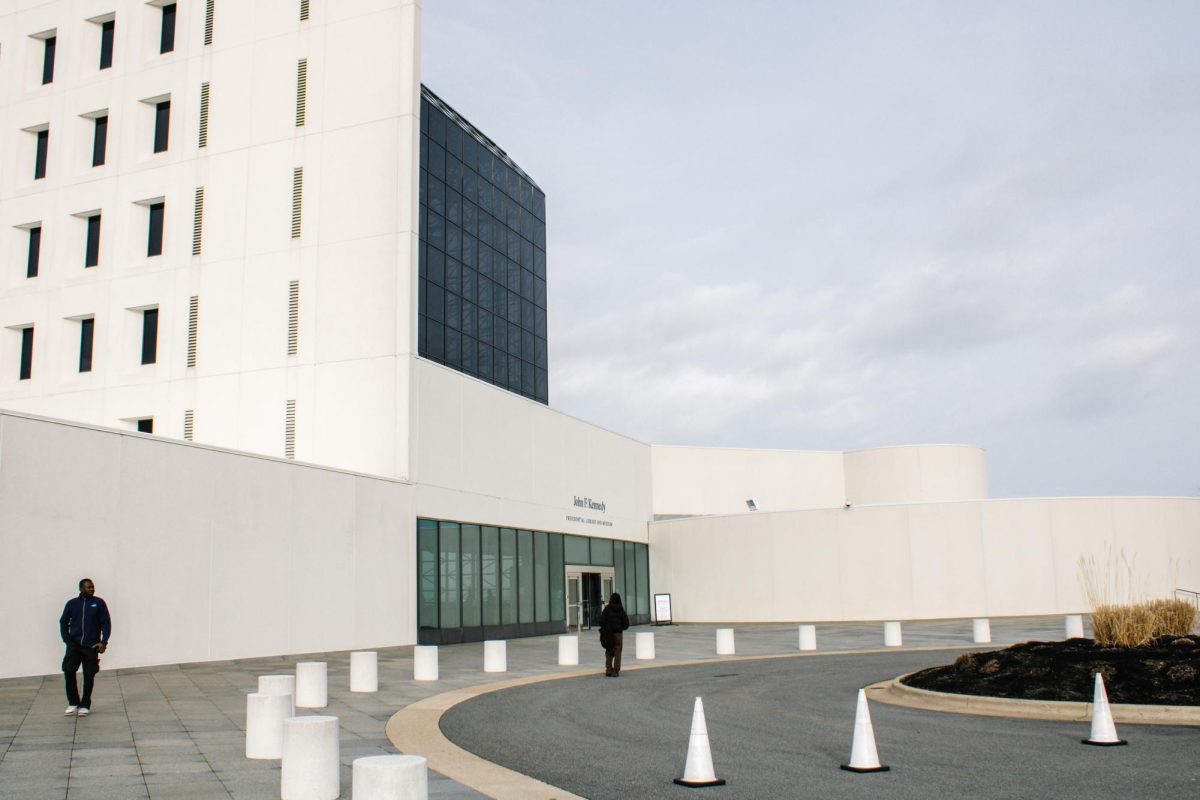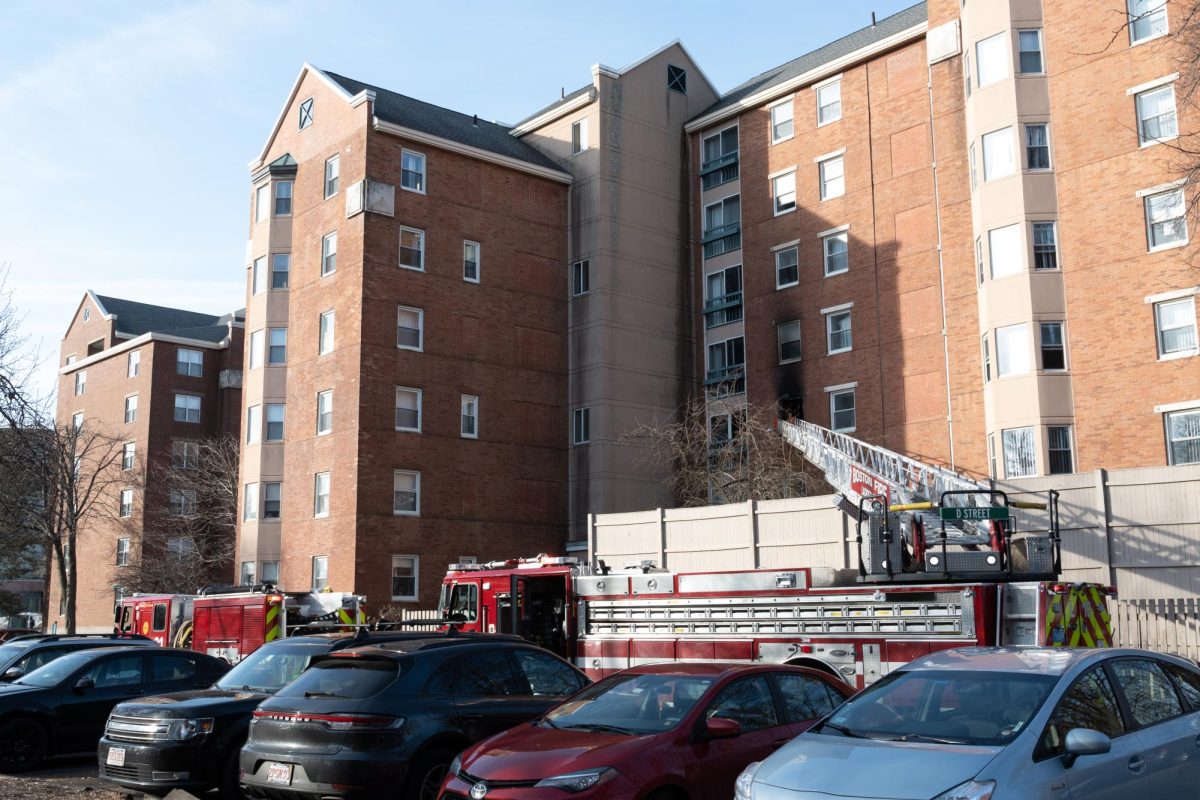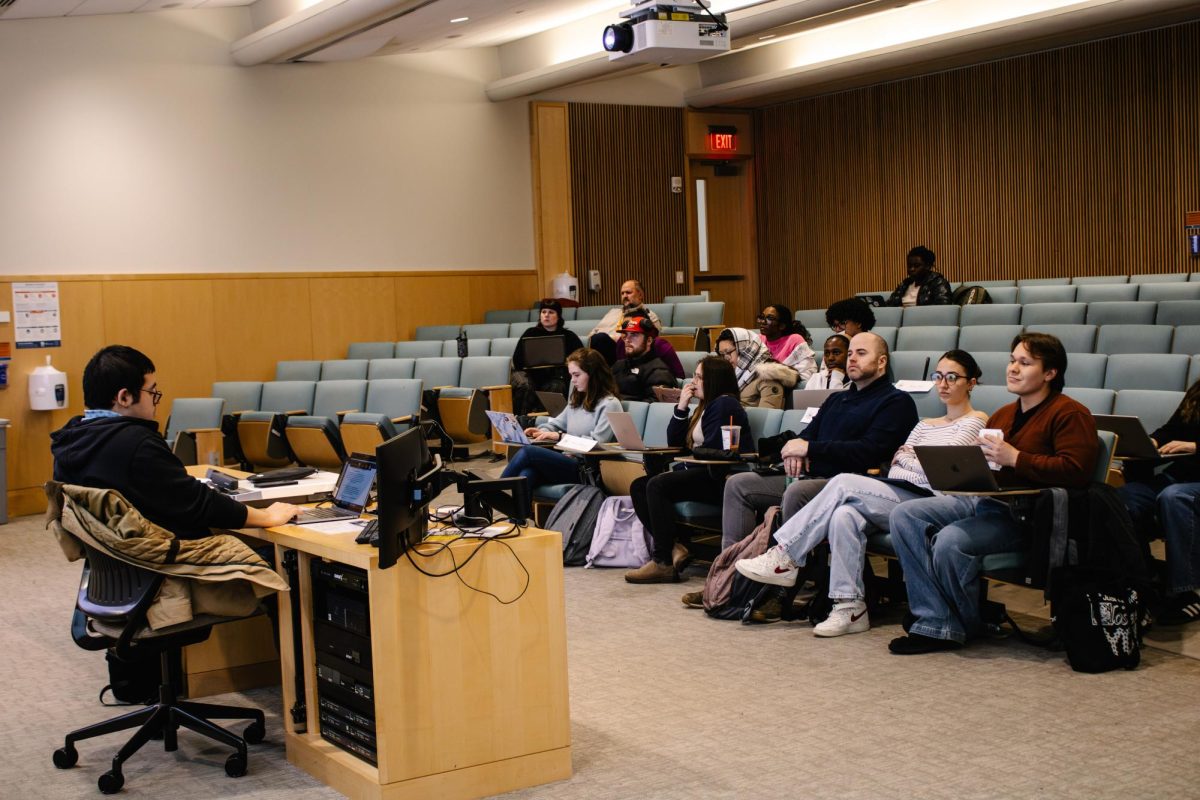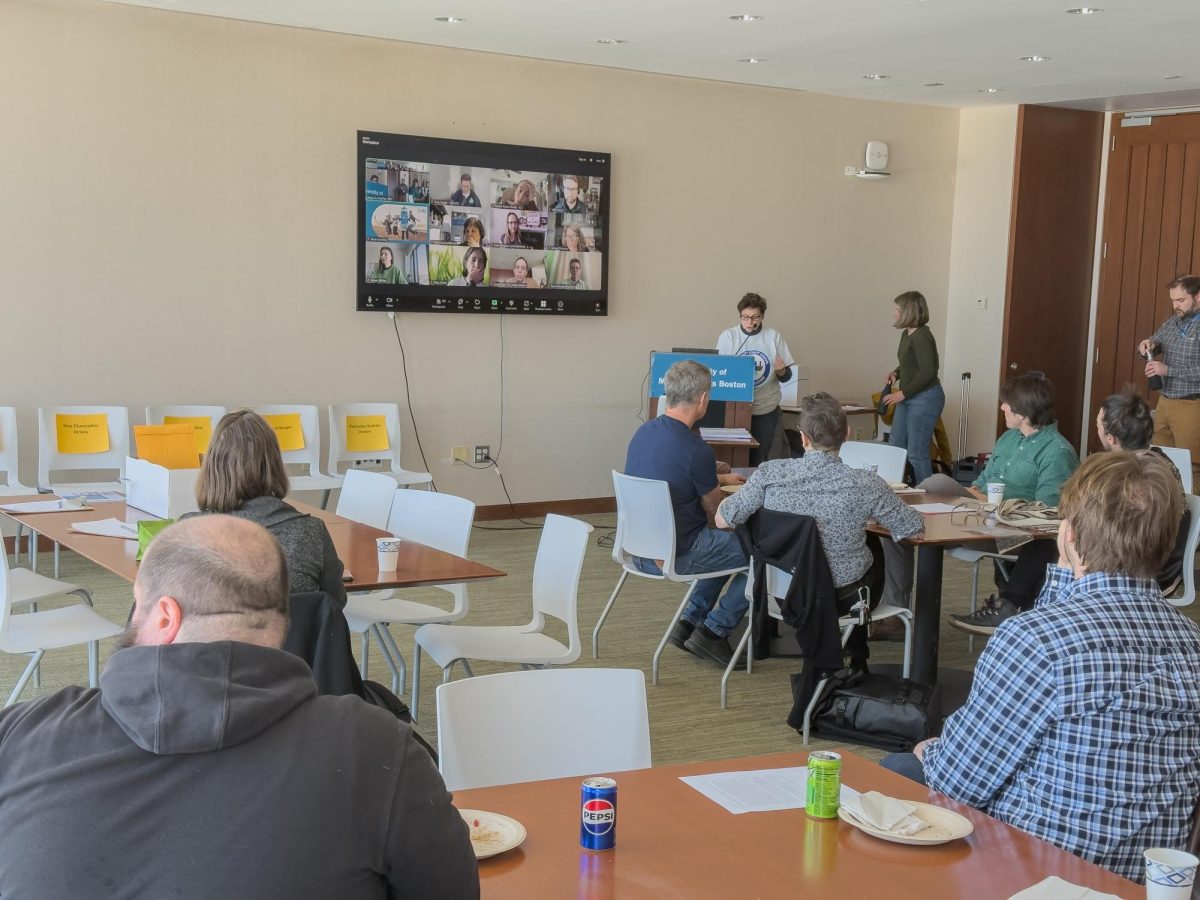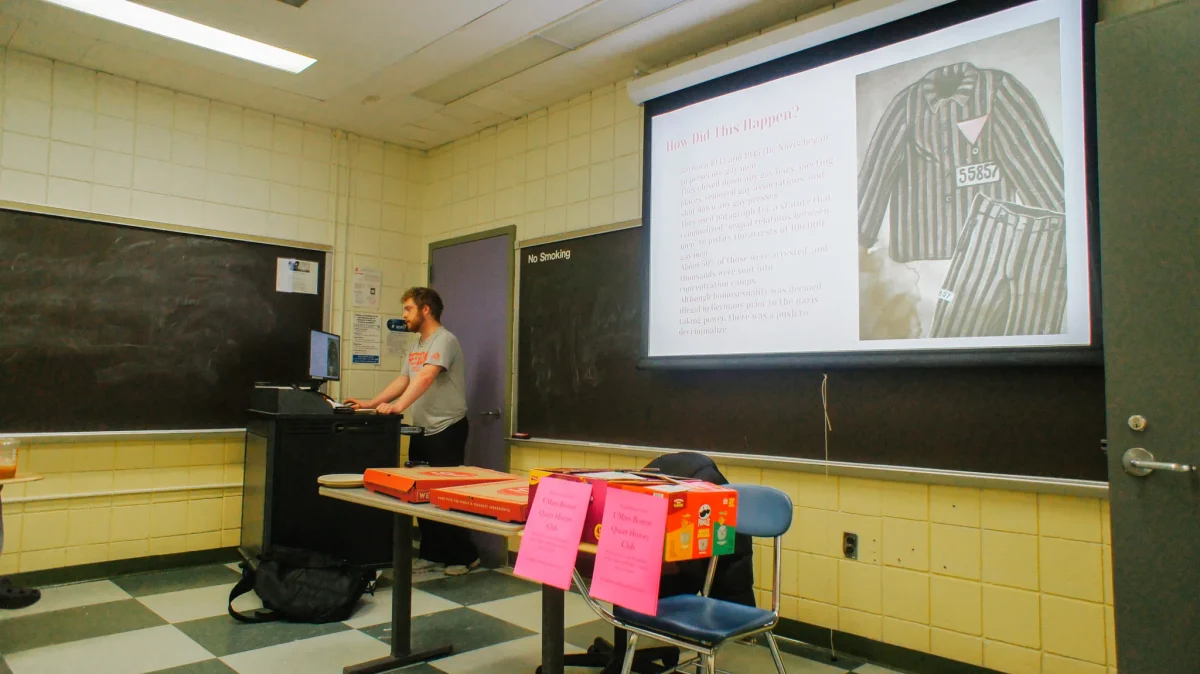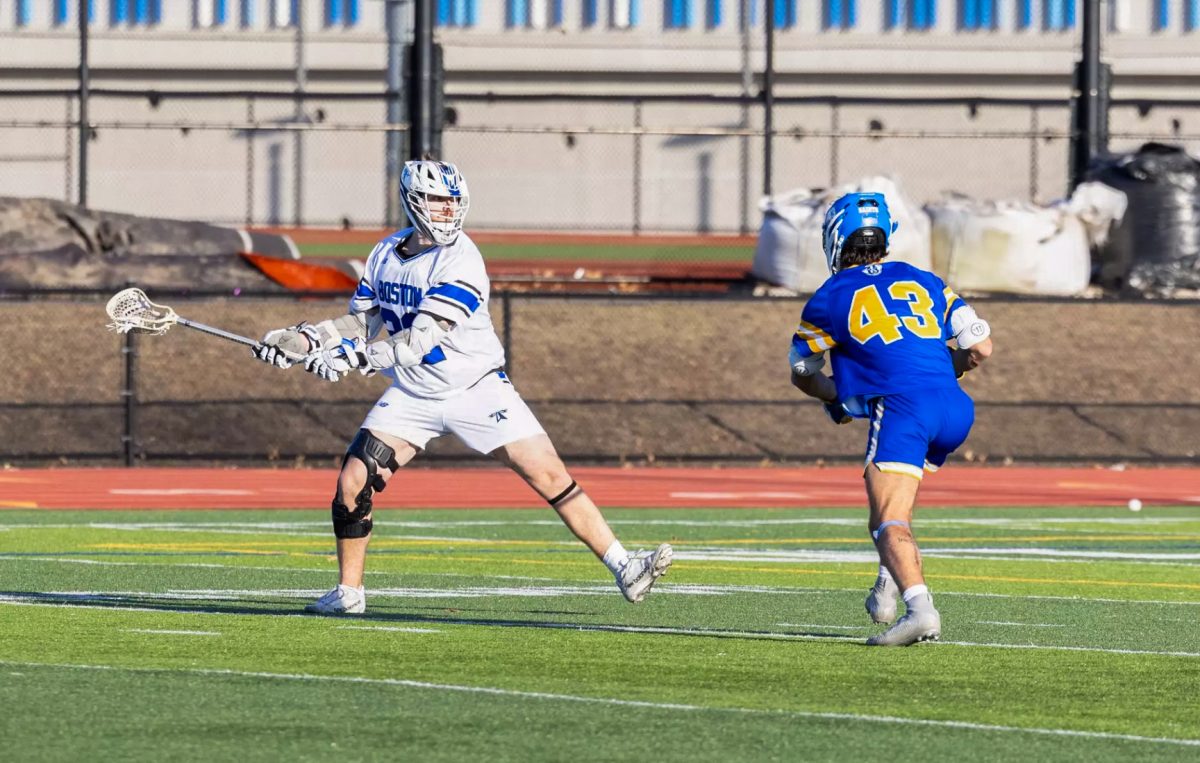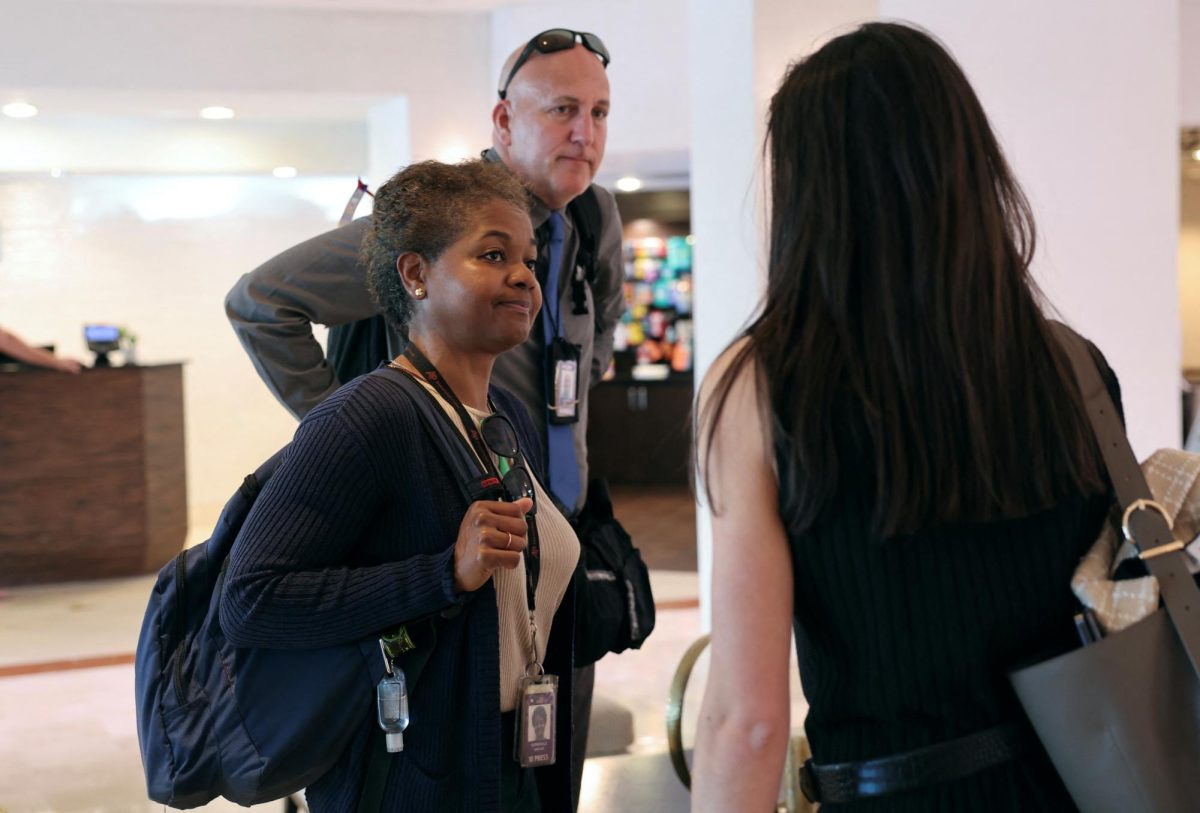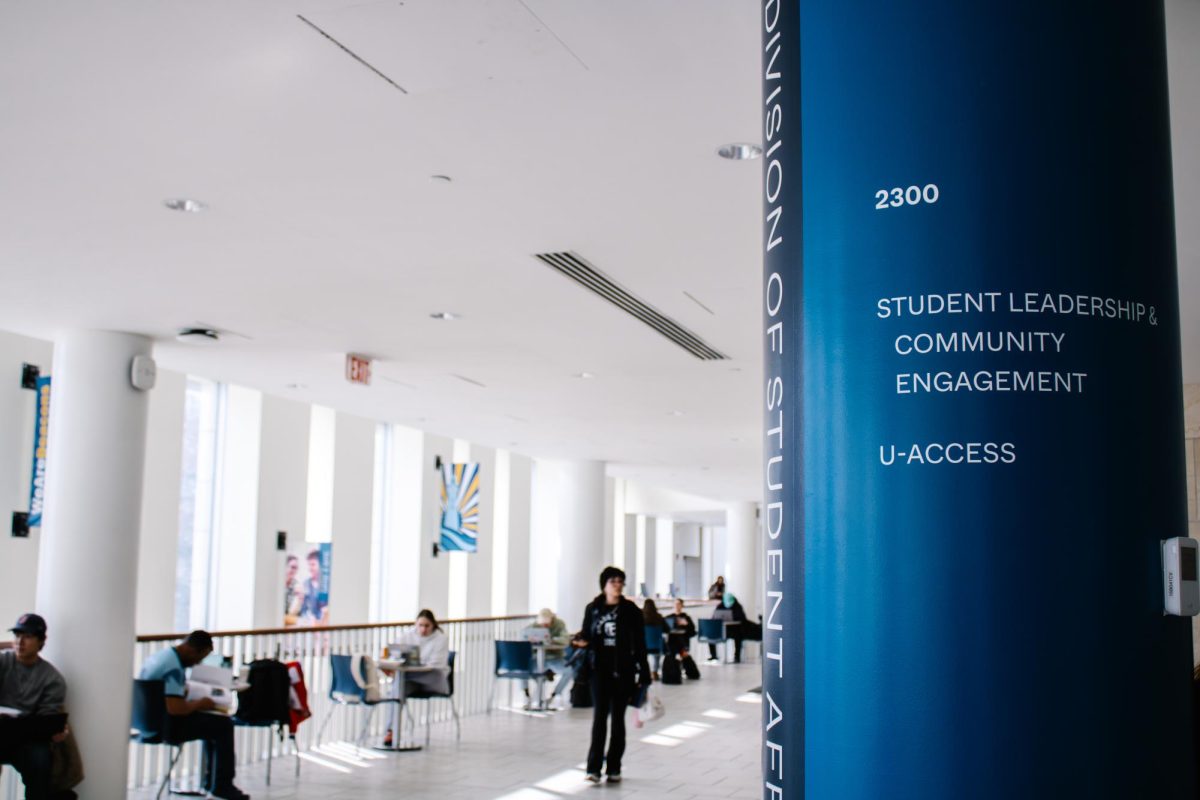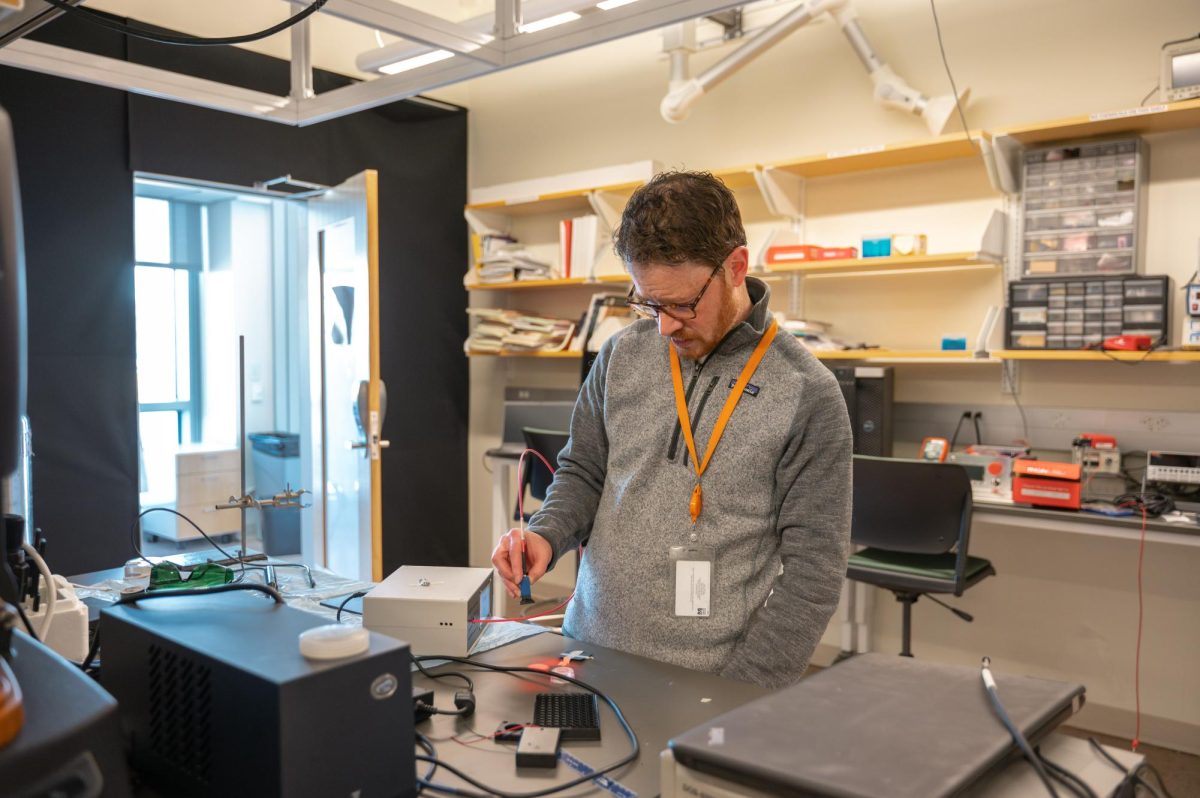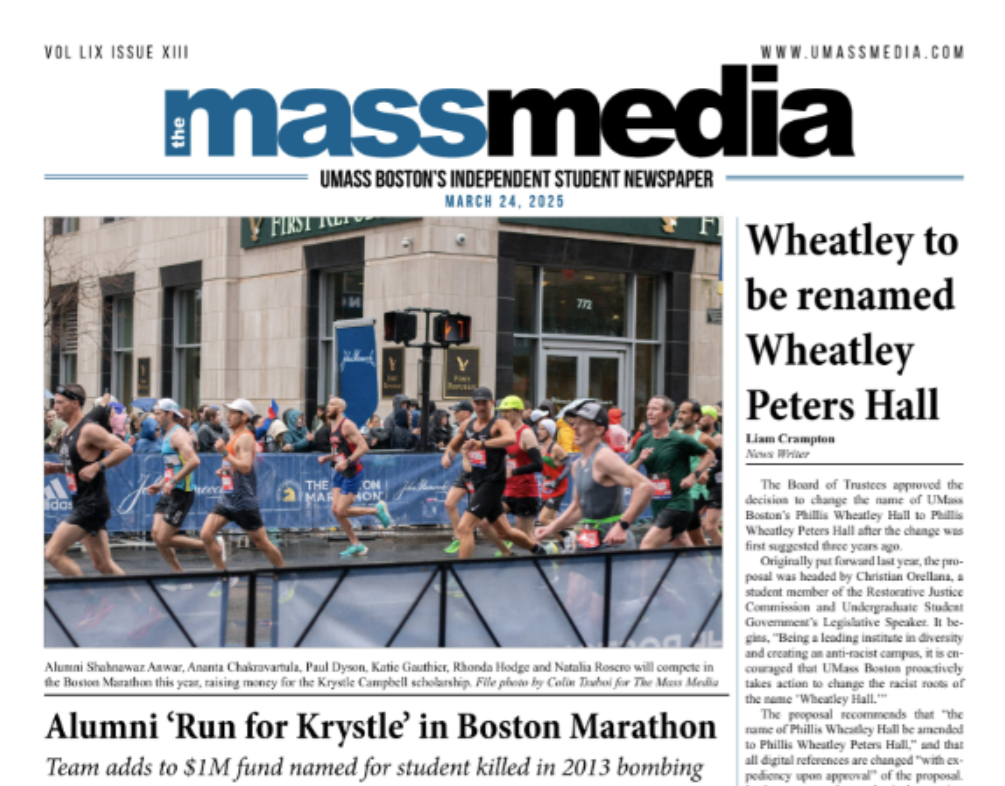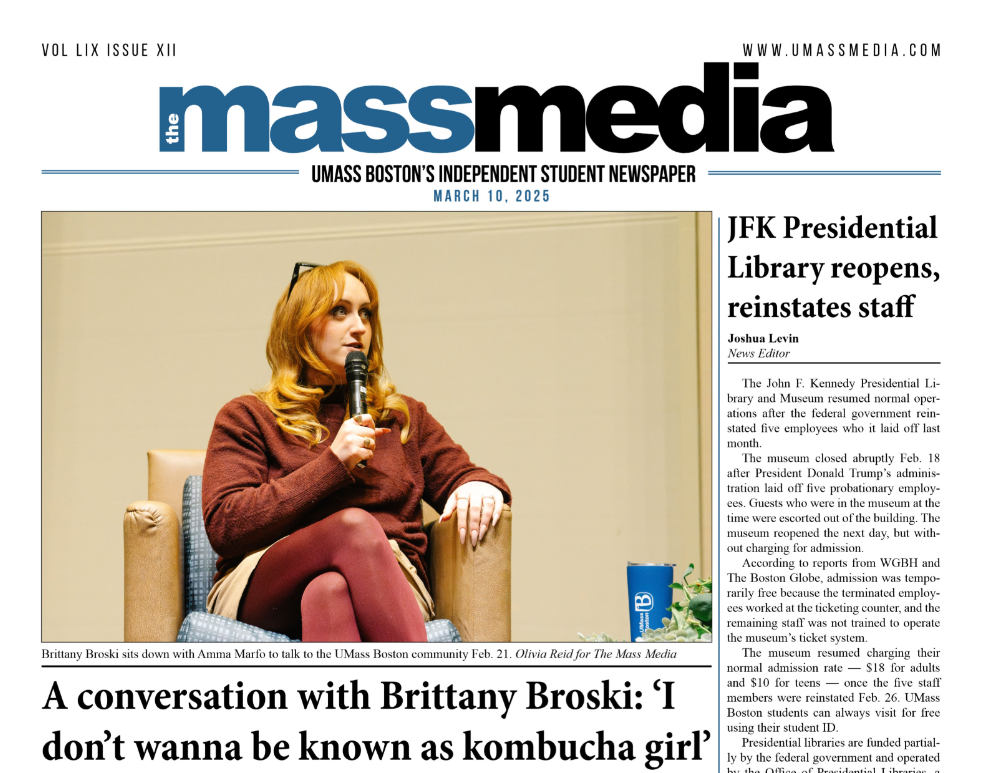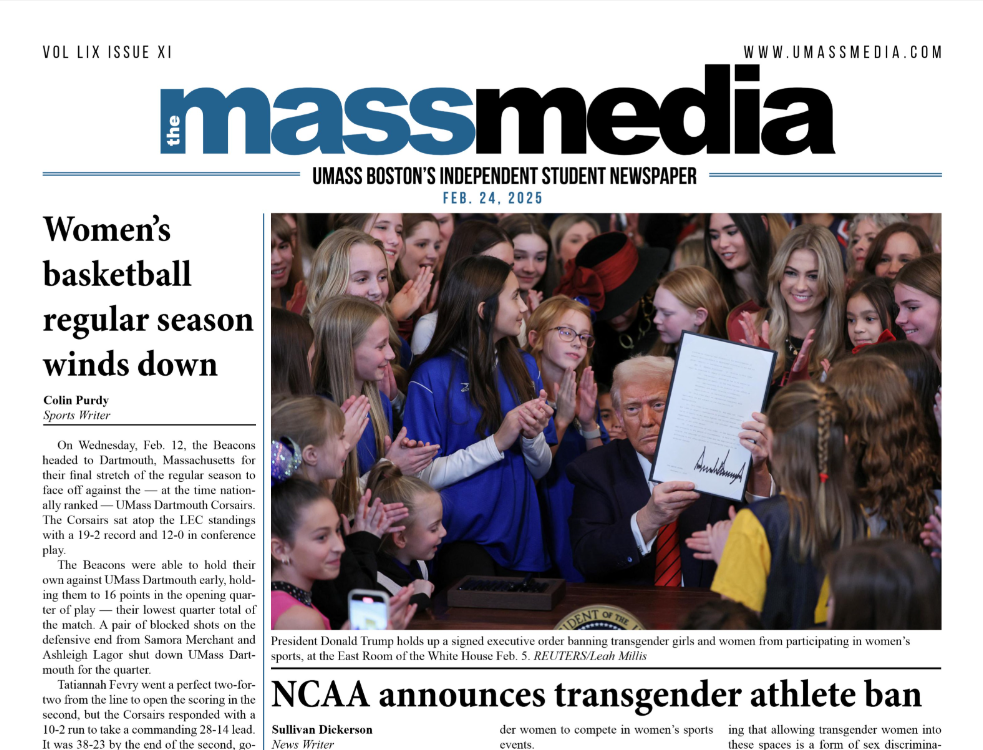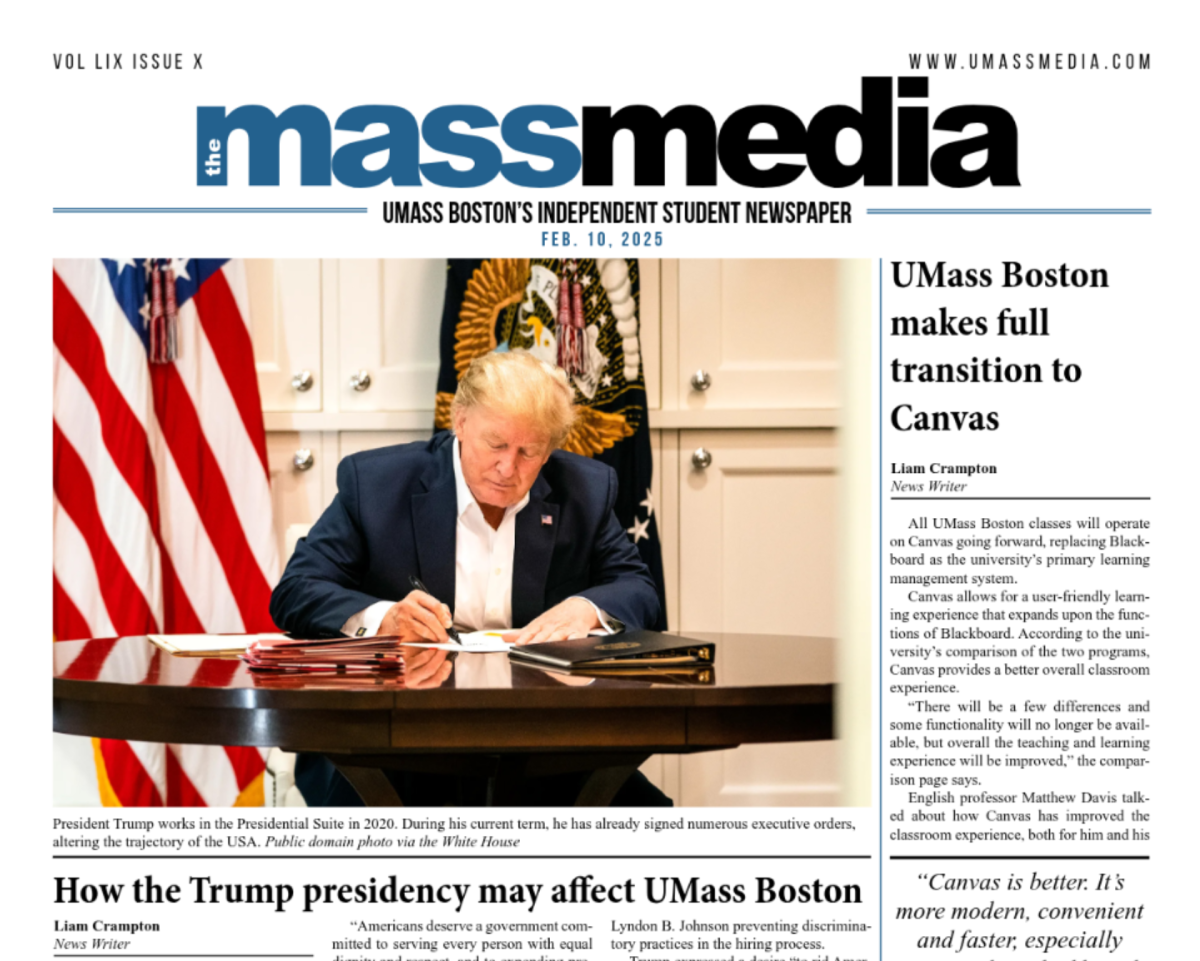Professor: “Naked Racism” On Campus
June 11, 2003
An exiting professor has leveled charges of “naked racism” and “ethnic cleansing” against the university, stating that dozens of minority faculty and staff members, including himself, have had to leave or have been marginalized.
The statements have left UMass Boston administration officials, who have denied the claims, “bewildered” and “perplexed.”
Zong-Guo Xia, associate professor of Earth and Geographic Sciences, says he noticed a “disturbing trend of ethnic cleansing,” pointing to an exodus of some senior black administrators in recent years as evidence. Among them, he lists deans of education, nursing, and a vice chancellor and the dean for student affairs. “Most of the senior black administrators… have been rightfully or wrongly, gently or not so gently, forced out during the last two years,” said Xia, an Asian-American.
“Associate Provost Winston Langley is the only one still standing and being increasingly marginalized,” he said.
When asked if he felt marginalized and if he had encountered any instances of racism while at UMass Boston, Langley, who has been here for twenty-two years, said, “No, not at all.”
Administration officials say that many left because of other opportunities, and early retirement, declining to comment further due to a policy of not discussing personnel issues with the media. Some people have been let go, but they have been primarily Caucasian, administrators say. Data from Human Resources, regarding the number of Caucasian administrators and faculty leaving in the last two years, in comparison to minority, could not be obtained at press time.
“I think Professor Xia is angry at some individuals in his college, and so he’s making some rather extreme charges that I don’t think are founded,” said Chancellor Jo Ann M. Gora. She said later: “I think it’s sad he’s striking out at an institution that worked hard to support him.”
Provost Paul Fonteyn said he’s bewildered and that there’s “no validity” to Xia’s charges. “It’s a little perplexing.”
Using a minority English faculty member who got a job offer at Penn State as an example, Fonteyn said he tried to match the offer, but it was a good opportunity for the person, so they left. “I don’t see how that could be cast as racism,” he said, adding that the university lost a white faculty member to Wellesley College as well.
On campus racial tensions have been running high on some levels since April’s incident involving a professor of Africana Studies and campus police. Professor Anthony Van Der Meer got involved in a verbal yelling match with an Army National Guard recruiter, and was taken down by campus police after the heated argument nearly escalated, amid cries of police brutality from a group of students who witnessed the event. While some saw it as a clash between pro-war and anti-war factions, others viewed it as a blatant form of racism.
The incident “may not be an isolated event,” said Xia, stating other examples of what he sees as “naked racism,” being “openly expressed without shame or even the slightest hesitation on our campus,” such as being repeatedly told a story in “half-joking fashion by a former associate dean of our college that concludes with the statement, ‘you can never trust a Chinese.'”
“I think those [kinds of comments] are inappropriate,” said Fonteyn, adding that they should have been reported to the Office of Affirmative Action. “If someone said that in an open meeting, they would be told not to do it again.”
Xia also accused the university of caring only about two things: money and publications in top journals. “The rest is just lip service. They don’t really care.
“If you publish one important article, they’ll probably keep you. You have a better chance than those who are committed to their students.”
Both Fonteyn and Langley stressed that is not the case, saying that there are three requirements for being kept on as faculty: research, teaching, and service. “Of those three, the person must have achieved excellence in at least two, and strength in a third,” they said.
These issues, which he feels “seriously concerned” about, have compelled Xia to leave UMass Boston for the City University of New York (CUNY), where he was offered a position as department chair of geology.
Xia came to UMass Boston in 1993, and is currently the director of a program in Geographic Information Technologies, having developed it over the last ten years into a regionally recognized program.
In a recent project Xia and his students mapped an area stretching from UMass Boston to downtown Boston, using, geographic information systems (GIS), which he calls an “extremely important area of research.”
“It is a wonderful opportunity to map our ‘backyard,’ Xia told The University Reporter in November 2002. “The data could help revitalize the city. This fits in wonderfully with UMass Boston’s urban mission.” The project was also hailed as benefiting over two hundred businesses.
“We have one of the best facilities in the country,” he says, stating that he started with a single used computer, and now has around seventy. “At MIT (Massachusetts Institute of Technology) and Harvard, they have a single class; here we have a whole program.”
And the students just keep coming, according to Xia. “It’s a fabulous situation.”
Xia contends that in the next ten years, it would be possible to develop it into a nationally distinguished program. “It’s not a fantasy,” he said. “It would only take modest support to get there.”
But one faculty member is retiring, and two decided to go elsewhere, reducing his team of seven to four. “I would be the only one left to hold this program together,” he said. “It can’t be done.”
So he tendered his resignation, meaning “there would be no program” come September. That, according to him, forced a discussion between the department and the dean of science and mathematics, Dr. Christine Armett-Kibel, who in turn spoke with the provost, Paul Fonteyn.
One non-tenured track line replacement was offered, and after more discussion, another. “Obviously, my view is that you can’t maintain quality with only two,” said Xia, stating his philosophy of “give me modest support, and I will give you the best.” “You have to show you’re willing to support the program. They refused to give us even one tenured track line.”
At the end of March, he sent out applications, and got an offer from Lehman College at CUNY, which has “a much more diversified student body,” a similar “urban mission,” a college president who is a minority, and a provost who is committed to new faculty and a program, he said.
Xia gave administrators the offer letter from CUNY, but “nobody talked to me,” he said.
Provost Fonteyn, using himself as an example, said the onus is usually on the person to start a talk. When he was a dean at a California college, he said he didn’t expect anyone to talk to him about it, calling it normal operating procedure. “If you want to get a counter-offer, you have to initiate the discussion.”
In the middle of April, he received an e-mail from Dean Armett-Kibel. She had recommended to the provost, and he had agreed, to a counter offer of $5,000 [more to Xia’s salary]. He was given a week to think about it. “The Provost and Chancellor are both committed to developing GIS on this campus and I know would welcome your advice in accomplishing this goal,” wrote Armett-Kibel.
“They didn’t talk to me, ask me why, what are the issues,” said Xia. “The offer, to me, was insulting.” He didn’t respond.
He later had meetings with Provost Fonteyn and Chancellor Gora.
The provost could not match the offer of the position of department chair, because of a different process at UMass Boston, and instead countered with a faculty position. But it was clear that Lehman had the better offer. “So I said goodbye and that’s it,” said Xia.
UMB administrators scrambled to fill the position immediately, “which wasn’t easy to do,” said Gora. “We have hired a new faculty member to take his place, who, as it turns out, is Asian, and was somebody who Professor Xia promoted for a position last year. He was upset that this person didn’t get the job last year, but that was a decision that was made in his college. But as it turns out, we have attracted that person to come to the university next year and take Professor Xia’s position.”
“[Xia] is right about one thing: the GIS program is solid. We’re going to build on the solid foundation he built,” said Fonteyn, wishing him the best of luck at Lehman. “He did a remarkable job here.”
Plans are in the works for the program to receive federal money, and Fonteyn is planning a trip to the University of Maine to see what a top-flight facility looks like to get ideas on how to design one at UMB.
In a room with wall to wall charts of geographic satellite images of Boston, New York, San Francisco, and Washington D.C., and shelves overflowing with hundreds of books, papers, and magazines, Xia leafs through some of the letters of support and sorrow over his departure that he’s gotten from current and former students. He loves and cares dearly for the many wonderful students and friends he’s had at UMass Boston, he says.
But “when key administrators show no respect to faculty members, and promote mediocrity, it damages morale. It’s no longer exciting for me,” he said.
“I decided it’s time for me to move on.”



